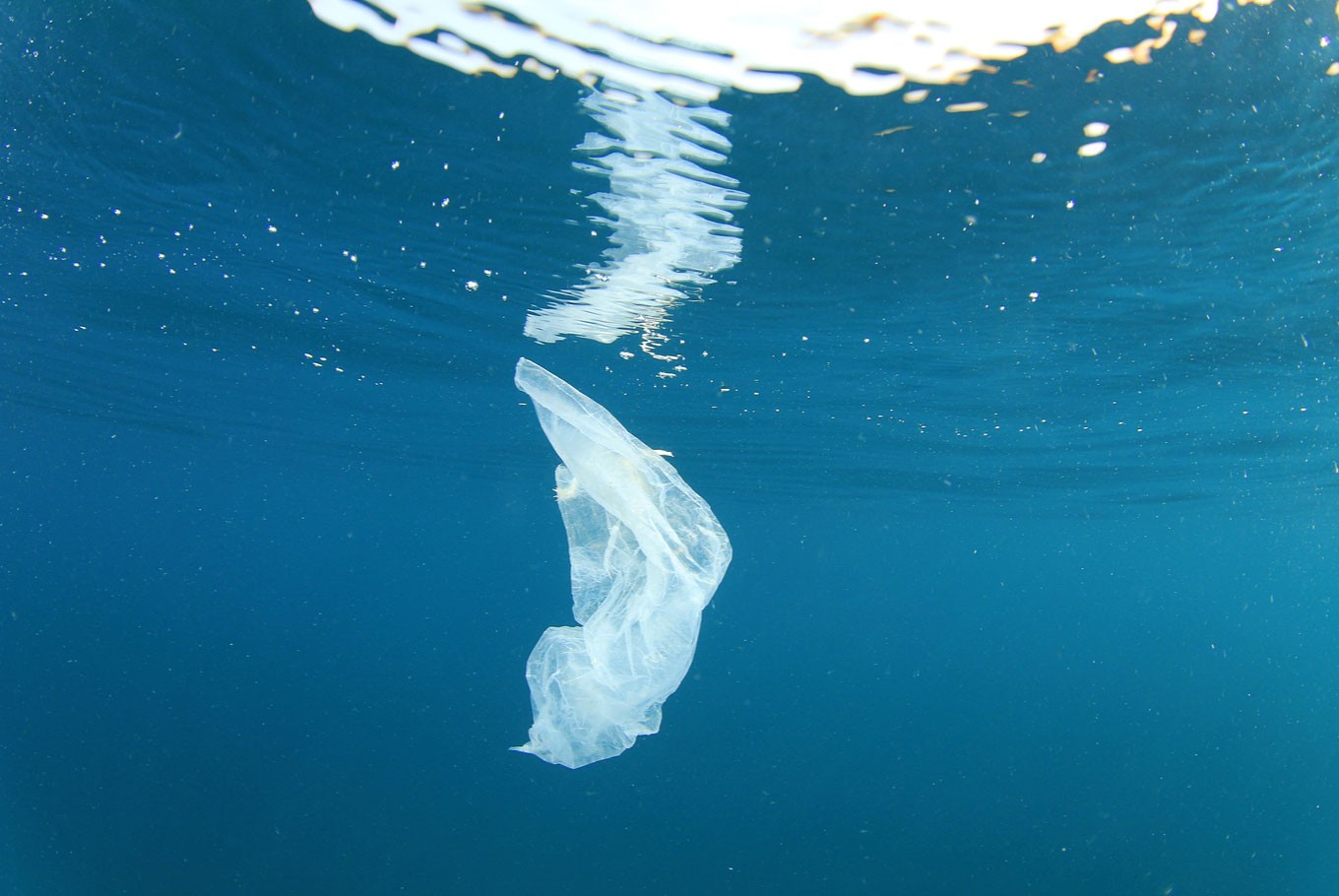Popular Reads
Top Results
Can't find what you're looking for?
View all search resultsPopular Reads
Top Results
Can't find what you're looking for?
View all search resultsCombatting marine plastic debris
In January 2016, a World Economic Forum report concluded that with the current trajectory, there would be more plastic than fish measured by weight in the world’s oceans by 2050.
Change text size
Gift Premium Articles
to Anyone
Marine plastic debris has moved up high on the international environmental agenda — and for good reason.
In January 2016, a World Economic Forum report concluded that with the current trajectory, there would be more plastic than fish measured by weight in the world’s oceans by 2050.
A previous study by APEC estimated that marine pollution cost member economies US$1.3 billion. Moreover, 95 percent of the value of plastic packaging material, worth $80-120 billion annually, is lost to the global economy.
The marine debris challenges are also present in Indonesia. Studies indicate that Indonesia may be the second-biggest contributor to marine plastic debris worldwide, with an estimated 1.3 million tons annually originating from the archipelago.
However, more detailed studies and analyses are still to be conducted in order to understand the magnitude of the problem.
The longevity of plastic molecules means that plastic waste travels far beyond borders and into our common high seas.
For example, plastic bottles degenerate over a span of more than 400 years, gradually turning into micro plastic partly entering into fish and ultimately on the dining table.
The plastic pollution challenge thus has global implications and must be addressed.
Today, Jakarta will host the Indonesia Marine Plastic Debris Summit organized by the Office of the Coordinating Maritime Affairs Minister together with the World Bank and Denmark.
At the Summit, people from around the world and Indonesia will discuss how to address the marine plastic challenges in Indonesia.
The discussions will be based on hotspot assessments from 15 urban centers in Indonesia supported by Denmark and will feed into a national action plan to be presented and used at the World’s Ocean Summit in Bali in February 2017.
Indonesia is strongly committed to this agenda and has identified the challenge at an early stage. With this week’s summit and the resulting action plan, Indonesia is leading by example.
Indonesia has already been actively participating in global and regional fora aimed at raising awareness and engagement on the ocean plastic challenge and catalyzing action at the national level; most recently the Our Oceans Summit in Washington DC and the APEC High Level Meeting on Marine Litter in Tokyo, both in September 2016.
With Indonesia located at the crossroad of one of the busiest maritime routes in the world and with 10 coastal neighboring countries, Indonesia’s marine environment is also affected by the plastic pollution of other countries in the region.
Indonesia’s leadership in this area is thus important.
As a maritime nation, plastic pollution is likely to have an adverse impact on Indonesia’s tourism, shipping and fisheries industries unless a comprehensive response is implemented in the near term.
Therefore, Indonesia and Denmark are joining forces to create innovative partnerships and share experiences on how to turn plastic from waste into value.
Solutions must be concerted and fast, that is clear.
But what are the best solutions? As an estimated 80 percent of marine plastic comes from land-based sources, the best solution would naturally be to stop leakage in the first place.
Besides prioritizing the ocean plastic challenge as part of the global policy agenda, the Ocean Conservancy recommends in its report ‘Stemming the Tide: Land-based Strategies for a Plastic-Free Ocean’ that governments at all levels set and achieve ambitious waste-management targets and create on-the-ground wins as proofs of concept for integrated waste-management approaches that can be replicated at larger scale with international funding and technology transfer.
Often when waste management is prioritized, tremendous results can be achieved. In South Korea, waste disposal dropped by 40 percent and recycling rates increased by 60 percent over the 1990s.
Based on experience from Denmark, where 95 percent of waste today is recycled or incinerated for energy purposes, Indonesia and Denmark are working together on two waste-to-energy demonstration projects in Cilacap and Semarang that can serve as proof of concept and be replicated at larger scale.
With the participation of companies with proven waste-to-energy experience at this week’s summit, it is our mutual hope and expectation that an exchange of ideas and
experience will lead to a more concrete and sustainable approach to waste management and marine environment.
Because only through concerted and concrete action will marine plastic debris pollution be effectively combatted nationally, regionally and globally.
***
Arif Havas Oegroseno is the deputy to coordinating maritime affairs minister. Casper Klynge is the ambassador of Denmark.
---------------
We are looking for information, opinions, and in-depth analysis from experts or scholars in a variety of fields. We choose articles based on facts or opinions about general news, as well as quality analysis and commentary about Indonesia or international events. Send your piece to community@jakpost.com. Click here for more information.










